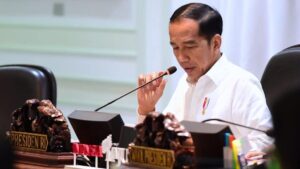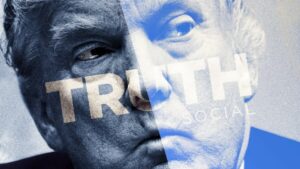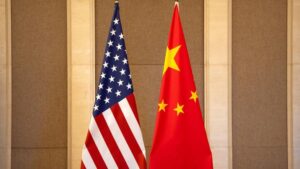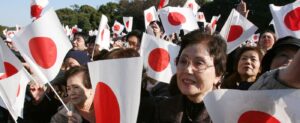From Havana to Miami: The Exiled and the Redeemed
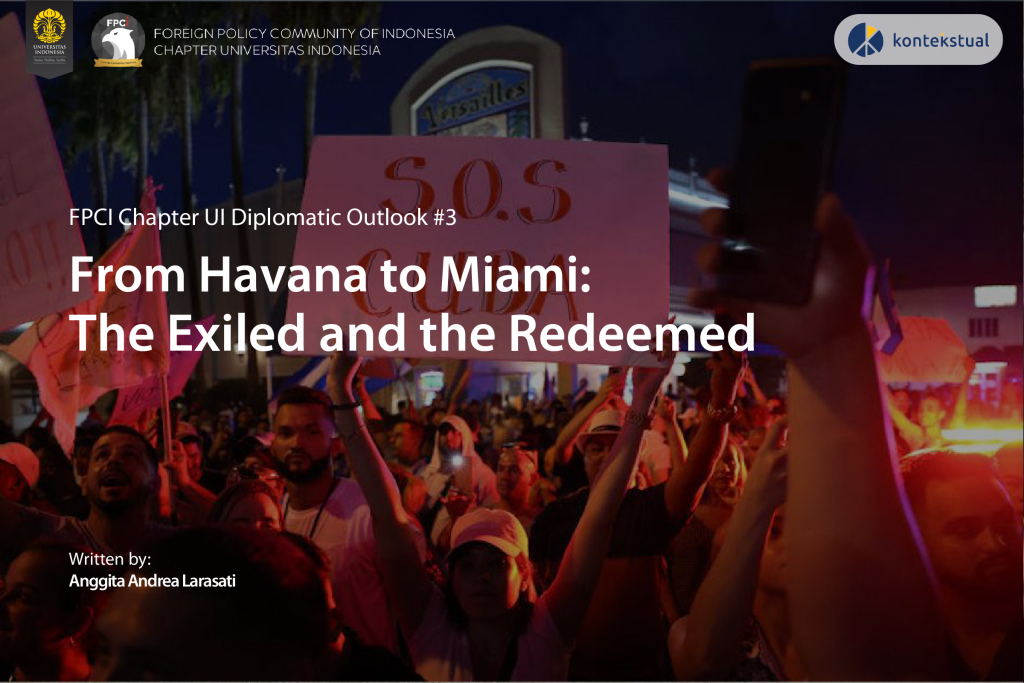
Illustration from FPCI UI
My speaker blasted ‘Qué Viva Fidel’ by Celina González as I scrolled through today’s news. One week had not passed since Haiti’s president, Jovenel Moïse, was assassinated by a group of foreign mercenaries, yet another commotion has caused some unrest in Havana and its surrounding cities—which quickly died down in a matter of hours.
To be fair, the Caribbean has never been a political paradise to start with, especially in the last couple of centuries. In 1983, Grenada suffered an invasion by Reagan’s regime which resulted in a “great victory” in toppling the communist government during the Cold War. Moving west, the Operation Uphold Democracy launched by Haitian military regime succeeded in overthrowing Haiti’s first democratically elected president Jean-Bertrand Arisitide, who eventually resumed power and was then kicked out of the picture by the US in 2004. Things are nowhere near pleasant either in the entire island of Cuba, a nation enduring decades of embargo until they can barely secure their people’s needs of food and medicine during the COVID-19 pandemic.
Cuba, on the other side of the archipelago, is arguably the softest spot for foreign forces to pick on. Since it declared independence from the United States in 1902, Cuba has been going through a series of agonizing conflicts, most of them involving its former colonist. The Cuban Missile Crisis went down in history as one of the tensest nuclear scare where humanity stood face-to-face with global annihilation. Earlier in 1961, a US backed landing operation tried to remove Fidel Castro from the premises, although it failed in less than 24 hours.
In recent times, more precisely on July 12, 2021, a number of Cuban populations urged Miguel Díaz-Canel to step down from the presidency. The protest turned global attention to the single-party nation, accusing their government as the sole bringer of calamity to their own people. All this hardship could have been averted if the US had normalized their relations with Cuba in the earnest manner possible instead of entertaining the obscure demands of Cuban exiles living in the US.
Those who wait, those who escape, and those who search
Back when Castro and Che Guevara established a communist government in Cuban soil, Fulgencio Batista led his supporters to emigrate from the island to the neighboring Dominican Republic. Even after 62 years, this mass emigration still persists until now. Nelson Amaro and Alejandro Portes (1972) classified this exodus into three waves of migration, from each according to their motives.
Soon after Castro ascended the throne, the first wave of emigrants fled the country following the nationalization of American industry and agrarian reform. In the span of 1959 to 1962, firm and sugar mill owners, big merchants, and representatives of foreign companies did a disappearing act while waiting for Americans to overthrow Cuba’s new government. Some counterrevolutionaries (gusanos or worms according to Castro) made an escape after the Bay of Pigs invasion flopped, doubling the exodus.
Other than those gusanos, more than fourteen thousand unaccompanied Cuban minors aged 6 to 18 were transferred to the US under the covert Operation Peter Pan. Their parents had their own reasons, ranging from fear of religious repression by the radicalized Cuban Revolution to the state’s growing interventions in their family lives. Rumor had it that Castro was planning to deprive parents of their legal authority over their own children.
The second wave of migration was done by the urban petite bourgeoisie, namely small merchants and street vendors. Those small business owners were searching for a new place to settle after Castro launched the Revolutionary Offensive in 1968 which aimed to nationalize the remaining private businesses. This political campaign confiscated about 58 thousand small enterprises with the hope of allocating workers to boost the sugar production which failed miserably with only 8.5 million tons out of the targeted 10 million tons of harvest.
A dialogue between the Cuban government and the Cuban exiles that took place in 1978 resulted in Cuban government agreeing to release political prisoners and reunify families by allowing visitations from Cubans residing in the US. This policy was partly responsible for the third wave of emigration. Called escoria (scum) by Castro, these 1980s refugees settled in the working-class city of Hialeah and other impoverished sections of Miami.
Those who hope and those who despair
Miami, in the context of Cuban-American settlers, cannot be separated from the birth and growth of the Cuban American National Foundation (CANF). The CANF, according to Reagan’s first national security adviser Richard V. Allen, was a suggestion he made to its founder Jorge Mas Canosa for Cuban exiles to form an interest group based on the model of the American Israeli Public Affairs Committee (AIPAC). The key difference between the two lobbies is that while the latter promotes the construction of laws that take the side of their homeland, the former tends to help their host devastate their own country of origin so they can take back what was theirs half a century ago.
Although the CANF claimed to be non-partisan, they were caught red-handed assisting the Reagan government by supporting Radio Martí, an American state-run radio burdened with the glorious purpose of bringing down Cuban communist government. The CANF’s role eventually extended to a greater distance of easing the ratification of bills that has brought unimaginable disasters to the people of Cuba.
During the late stage of communism emblemized by the fall of the USSR in early 1990s, the heavily dependent Cuban economy experienced the butterfly effect of the Iron Curtain Country’s dissolution. In the middle of this prolonged economic crisis known as the Special Period, US Congressman Robert Torricelli invented a bill titled ‘The Cuban Democracy Act’ which was intended to “wreak havoc on that island.” The bill eventually passed as a means to “promote a peaceful transition to democracy in Cuba through the application of sanctions directed at Castro government and support for the Cuban people.” This statute prohibited foreign-based subsidiaries of US companies from performing trade with Cuba, suppressed family remittances to Cuba, and prevented US law-abiding citizens from making a short getaway in Cuba.
With the Cuban American National Foundation (CANF) spreading influence to policy makers, the sanctions were more deterring than ever. Four years after Bush Sr. enacted the legislation, the Cuban Liberty and Democratic Solidarity (Libertad) Act of 1996 (also known as the Helms—Burton Act) strengthened and lengthened the US embargo against Cuba. It was meant to provoke US allies to condemn foreign companies that do business with Cuba as offenders of international law.
Biden the Redeemer?
Although CANF is not as triumphant as its clout rival, growing public interest in the US foreign policy toward Cuba is helping the grassroot activism of ethnic Cuban-Americans flourish. The recent protests in Havana instigated some Cuban exiles in Miami to beg Biden to take measures, preferably with the use of violence, in order to “bring this regime to an end.” To no one’s surprise, Biden answered with a misleading remark that Cuba’s current economic and humanitarian sufferings “have been subjected by Cuba’s authoritarian regime.”
Speaking for humanity and its non-derogable rights, Biden should have considered the long-standing embargo against Cuba as one of the great—if not the greatest—human rights violations in contemporary history. Cuba has recently planned to adapt to the current predicaments by slightly shifting their centrally planned economic system, but they cannot do so without fully inserting themselves into the global market. On top of that, a state should not be able to force other states to comply with its extraterritorial legislation because it will defy the non-interference principle, a universal tenet of contemporary international law.
Quoting José Marti, one of Cuba’s renowned poets and revolutionaries, all Cubans want is a sovereign state that is “for all and the good of all.” This motto does not only aim at giving the utmost benefits to their own people, but also to the prosperity of international society. Even in the midst of an economic recession worsened by a global pandemic, Cuba still deploys 1,200 of their valuable doctors to help combat COVID-19 in 22 countries, among them is South Africa. Cuban exiles are bringing shame to themselves if they keep doing “peaceful” protests in favor of a military intervention by a superpower against a small nation crippled by an overkill of sanctions since the outset of their own self-determination.
It is crucial that Biden take the proper course of action in handling this matter by lifting all the ruthless sanctions against Cuba and ending the miseries of their 11 million population. Batista’s Cuba is a world long gone, and now the future holds so much for Cubans if only US would stop taking advantage of Cuban-Americans for their own political agenda. The US Cuba policy is neither in behalf of the American people nor in the interests of the Cuban people. It is the embodiment of the vague yet vigorous reconquista dream of the banished then redeemed Cuban-American group enjoying a hot summer in Miami.
References can be accessed through bit.ly/DipLookCubaReferences
Anggita Andrea Larasati is the Vice Manager of Opportunity and Development FPCI Chapter UI Board of 2021.

